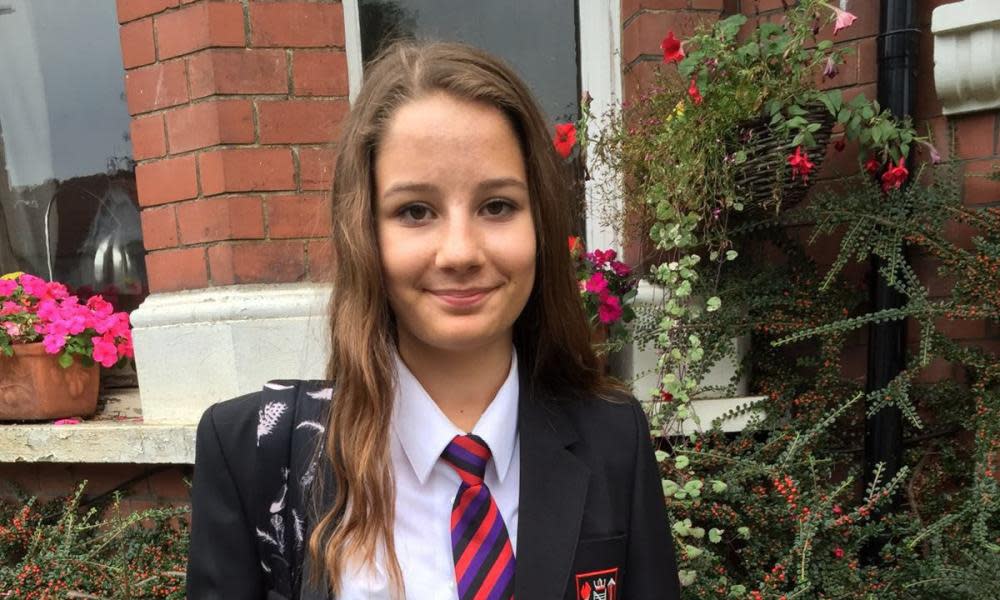Molly Russell inquest must lead to action on internet dangers, says coroner

The senior coroner examining the death of Molly Russell has said the inquest must serve as a catalyst for protecting children from the risk that the internet has brought into family homes.
Andrew Walker outlined a series of concerns about the impact of social media on children, including the use of algorithms to push content to their accounts, a lack of age verification and a lack of content regulation.
Walker, who is presiding over the inquest at north London coroner’s court, said it represented an opportunity to protect children from harmful content.
“It used to be the case when a child came through the front door of their home it was to a place of safety,” he said. “With the internet we brought into our homes a source of risk and we did so without appreciating the extent of that risk. And if there is one benefit that can come from this inquest it must be to recognise that risk and to take action to make sure that risk we have embraced in our home is kept away from children completely.”
Molly, 14, from Harrow, north-west London, killed herself in November 2017 after viewing extensive amounts of content related to suicide, self-harm, anxiety and depression on social media platforms including Instagram and Pinterest.
The coroner said the two-week inquest had “provided a rare opportunity” to see “the extent to which that risk has invaded all aspects of young people’s lives”.
He added: “This is an opportunity to make this part of the internet safe, and we should not lose it or let it slip away.”
Walker is expected to deliver his findings of fact and conclusions on Friday. A prevention of future deaths report, which asks parties to take action to prevent further deaths, is expected at a later date.
Other concerns raised by Walker on Thursday included a lack of separate sites for children and a lack of parental oversight of what children are looking at online.
In submissions to the coroner on Thursday, the Russell family’s legal representative compared the impact of the digital revolution on children with that the of the Industrial Revolution.
Oliver Sanders KC said: “It is a feature of all revolutions that they tend to put progress first and safety of the vulnerable second.” Drawing a comparison between the industrial and digital revolutions, he said children were the victims in both contexts.
Sanders was critical of the evidence given by a senior executive at Instagram’s owner, Meta. He said Elizabeth Lagone, the head of health and wellbeing policy at Meta, was “frequently evasive” and refused to answer straight questions over two days of evidence at the inquest. On Monday, Lagone apologised after admitting that Instagram had shown Molly posts that breached its content guidelines.
Meta’s legal representative, Caoilfhionn Gallagher KC, said she disagreed with Sanders’s description of the Meta executive’s evidence.
Arguing that the content viewed by Molly caused or contributed to her death, Sanders pointed to posts that were quoted in notes found in her room after she died. Sanders said the posts were “litanies of self-hate directly reflected in her notes almost word for word”. He said that having shaped her thoughts, the posts then “shaped her actions”.
Gallagher said Meta was “ready to listen carefully to any concerns” raised from the inquest, while Pinterest’s representative, Andrew O’Connor KC, said the platform was “committed to make improvements” on safety.
In the UK, the youth suicide charity Papyrus can be contacted on 0800 068 4141 or email pat@papyrus-uk.org, and in the UK and Ireland Samaritans can be contacted on freephone 116 123, or email jo@samaritans.org or jo@samaritans.ie. In the US, the National Suicide Prevention Lifeline is at 800-273-8255 or chat for support. You can also text HOME to 741741 to connect with a crisis text line counsellor. In Australia, the crisis support service Lifeline is 13 11 14. Other international helplines can be found at befrienders.org

 Yahoo Movies
Yahoo Movies 
